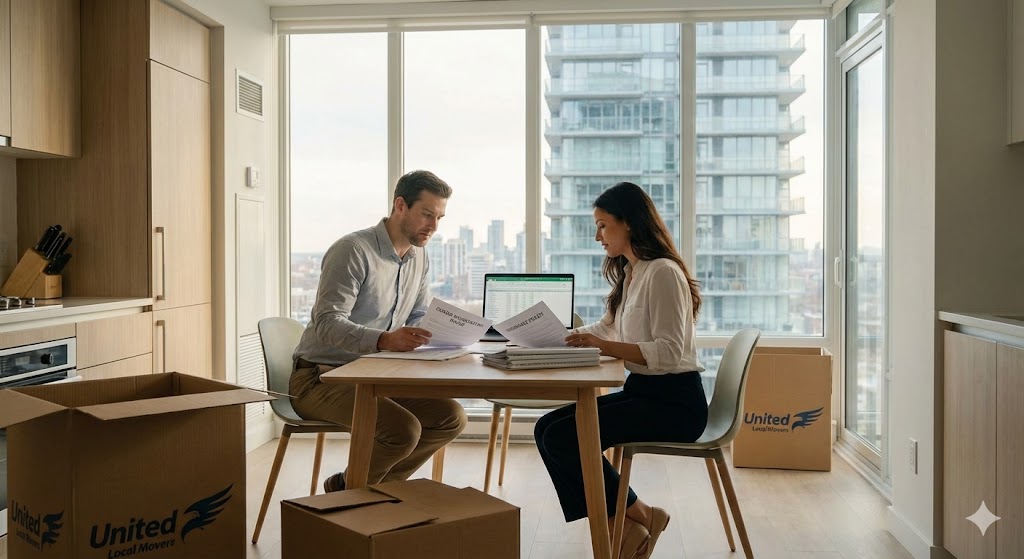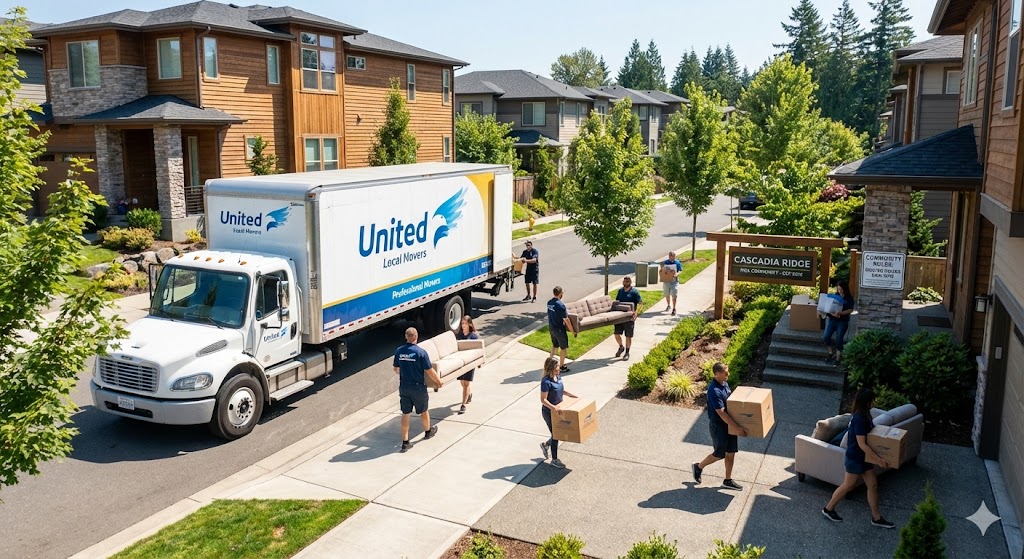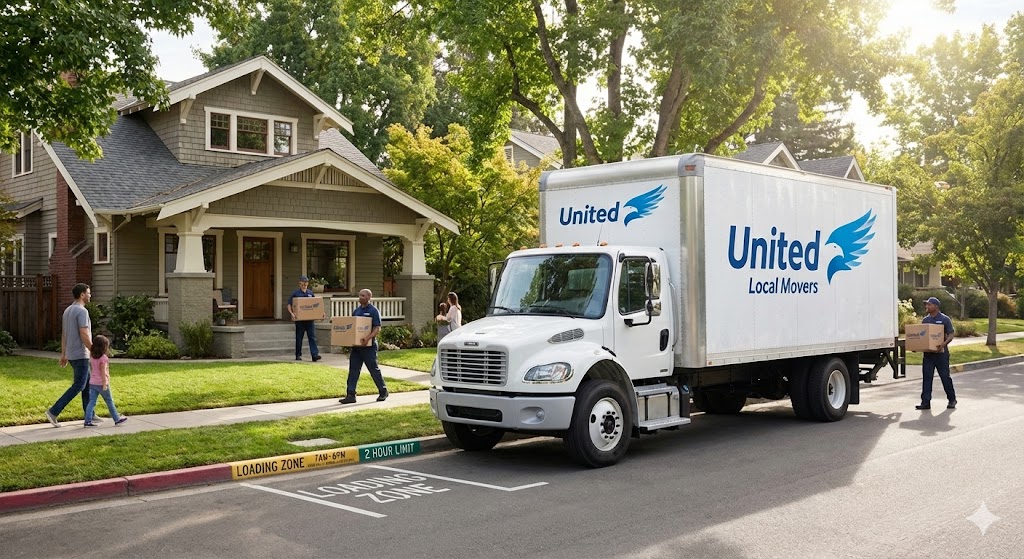Packing up your home isn’t just about sealing boxes and labeling containers—it’s also about protecting your health while doing it. When you’re surrounded by cardboard, tape, and dust from years of stored items, indoor air quality can quickly decline.
At United Local Movers, we believe in making every move as healthy and stress-free as possible. In this guide, we’ll explain why proper ventilation is essential during packing and how to keep your moving environment clean and safe—especially if you or your family have sensitivities to allergens, chemicals, or heat.
Why Ventilation Matters While Packing
Packing isn’t just physical work—it stirs up dust, fibers, and particles that can linger in the air and affect breathing. Good airflow helps:
- Reduce airborne dust from old books, rugs, and storage spaces
- Dilute chemical fumes from cleaning sprays, adhesives, and packaging materials
- Control humidity to prevent mold growth on packed items
- Keep temperatures comfortable when working for long periods indoors
- Protect children and pets from exposure to irritants and poor air quality
This is especially important for people with asthma, allergies, or respiratory conditions. Fresh air can make all the difference between a smooth pack-out and an exhausting one.
Risks of Poor Airflow During Packing
If you ignore ventilation, you may end up dealing with more than just clutter and boxes. Health risks include:
- Irritated eyes, nose, and throat from dust and fumes
- Headaches or dizziness due to chemical exposure
- Increased allergy symptoms or asthma flare-ups
- Mold development in sealed areas with high humidity
- Heat exhaustion or fatigue in enclosed, stuffy rooms
The good news? These issues are easy to avoid with a few smart strategies before and during packing.
Best Practices for Keeping the Air Fresh While Packing
1. Open Windows and Doors Strategically
Even cracked windows can improve air circulation. Create cross-ventilation by opening at least two windows in different parts of the room. This allows fresh air in and pushes out dust-laden air.
2. Use Fans to Boost Air Movement
Box fans placed in windows can pull in fresh air or push out stale air. Ceiling fans or standing fans help circulate the air inside and reduce pockets of dust buildup.
Pro tip: Place one fan blowing inward near the floor and another blowing outward near the ceiling for optimal air exchange.
3. Take Regular Fresh Air Breaks
Step outside every hour to breathe deeply and give your lungs a break from dust and fumes. This also gives your body time to cool down and rehydrate—especially in warm weather.
4. Choose Low-Odor Cleaning Products
If you’re wiping surfaces or preparing rooms for emptying, stick with low-VOC or natural cleaners like vinegar and baking soda. Strong chemicals can cause headaches or worsen indoor air quality if used without proper ventilation.
5. Use HEPA Air Purifiers for Sensitive Individuals
For those with allergies or asthma, a portable air purifier can be a game-changer. HEPA filters trap fine particles like dust mites, pet dander, and pollen, making the space more tolerable during heavy packing sessions.
6. Clean Before You Pack
Vacuum floors, wipe shelves, and dust ceiling fans before you start boxing things up. This reduces the amount of debris that becomes airborne once you begin shifting furniture and opening closets.
Ventilation Tips by Room
Attics and Basements
These areas often lack natural airflow. Consider packing during early morning or evening hours when it’s cooler, and bring in a fan or dehumidifier to manage moisture and air movement.
Garages and Storage Areas
Always open garage doors fully when packing inside. If using cleaning agents or aerosols, ensure strong ventilation to avoid inhaling harmful fumes. Keep kids and pets away from these zones until everything is cleaned up.
Bedrooms and Living Spaces
Open windows while sorting through clothing, bedding, and linens—they tend to release the most dust and fibers. Consider placing a fan nearby to maintain a steady flow of fresh air.
Special Precautions for Pets and Kids
Children and animals are more vulnerable to poor air quality and heat. To keep them safe:
- Create a designated “safe zone” with minimal dust exposure
- Use air purifiers or fans in their sleeping area
- Avoid leaving them in closed rooms where cleaning or packing is ongoing
How United Local Movers Supports Healthy Moving Conditions
We know that a clean, well-ventilated space makes for a smoother and safer move. At United Local Movers, we offer:
- Professional packing services that minimize dust exposure
- Allergen-friendly supplies and low-fume packaging materials
- Scheduling flexibility to work during cooler, less humid times of day
Our team is trained to prioritize both efficiency and safety—so you don’t have to worry about air quality while preparing for your big move.
Need Extra Time Before Full Unpacking?
If you’re not ready to settle into your new home right away—or want to take a vacation before unpacking—our temporary storage solutions offer a safe place for your belongings while you catch your breath.
You can store your items for days or weeks, giving yourself time to adjust to local regulations, finalize paperwork, or simply enjoy a break after relocation—without rushing the process.
Final Thoughts
Packing in a well-ventilated space isn’t just about comfort—it’s about maintaining your health and energy levels throughout the move. With a few simple steps like opening windows, using fans, and taking breaks outdoors, you can make the entire experience more pleasant and productive.
Let United Local Movers support your transition with professional packing, climate-conscious scheduling, and flexible storage options. Contact us today to learn how we help you move safely, efficiently, and with peace of mind.



